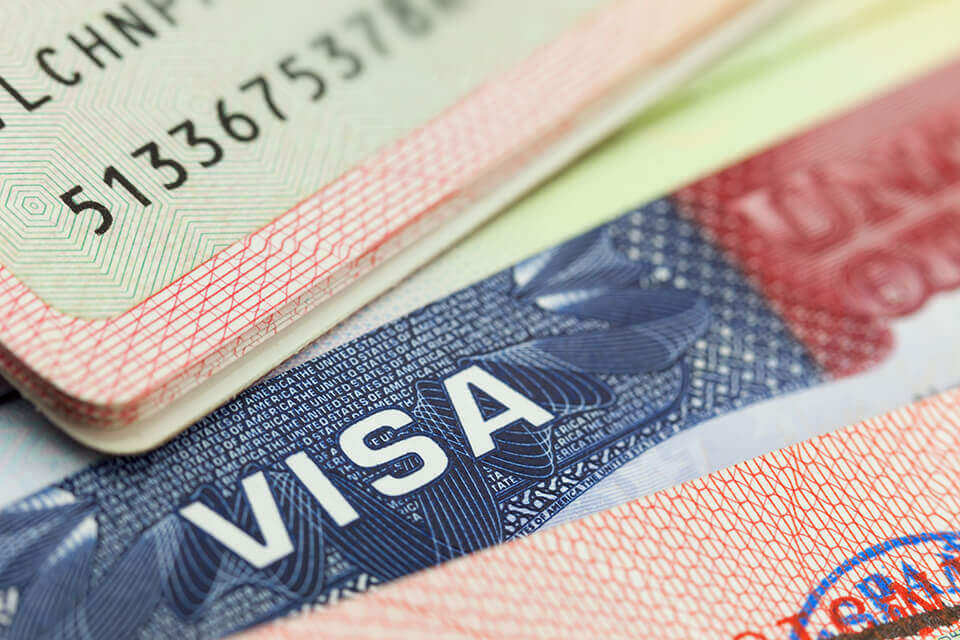Moving to France, a country with a rich history that shaped the rest of the world, vibrant culture, an array of gastronomical delights, and breathtaking nature is a great decision. But before you get there, you might want to check out our little guide specially prepared for Americans looking to become expats in this glorious nation.


France is located in the heart of Western Europe, and currently, its population counts more than 67 million people. It’s known for so many things, like the Eiffel Tower in its beloved capital Paris, fine wine and cheese, and famous fashion and car brands like Dior, Chanel, Peugeot, and Renault. The Louvre, the world’s largest art museum, is also there, and it’s home to many groundbreaking paintings and sculptures like Mona Lisa and the Venus de Milo. Choosing to live here is a fantastic idea, and we’ll help you prepare for what awaits you.
The First Step Is to Get to Know What the Legal Requirements for International Moving to France Are
When relocating to whatever spot in the world outside of the US territories, you’ll need to have all the documents needed to travel abroad. Contact the French Embassy for the exact list of paperwork needed in your particular case, but before calling or visiting them, here’s some general information.
In case you’re staying longer than three months, you will no longer be considered a tourist, so you’ll need an appropriate long-stay visa. For that type of visa, you’ll have to register with the French Office for Immigration and Integration (OFII) within three months.
Requesting a tourist visa that will allow you to stay up to one year and that can be renewed annually when it expires is also an option. After that period, you’ll have to pay taxes and obtain a driver’s license if you want to operate a car. You can ship your vehicle overseas or buy a new one.
You can get citizenship if you stay legally for five years or if you’ve been married to a French citizen for at least four years.
List of Requirements for a Visa Application When Moving to France From the USA
The list of documents and the type of visa varies depending on whether you’re moving to work, study, or make a new life in France. Whatever the case might be, you’ll have to apply for a France Schengen Visa. Here’s a list of things that you might need to do and prepare:
- Download the application form,
- Check if you have a valid passport for at least three months and copy your previous visas,
- Get a copy of your return-ticket reservation when you get the visa,
- Get a Schengen travel insurance policy,
- Write a cover letter stating the purpose of a visit,
- Reserve your flight ticket,
- Get proof of accommodation, civil status, and evidence of financial means.


How to Move to France as an American – It’s Best to Open a New Bank Account
It’s not legally required, but since you’ll have some paying to do, it will all be easier if you open an account in a French bank. Paying for utilities, mortgage, and receiving your salary will become way easier if you choose a local bank. That way, you’ll avoid the costs of managing your finances from an overseas account and be safe in case of a last-minute move. There are three types of bank accounts in France:
- Current account for managing everyday money
- General savings account for storing funds
- Long-term savings account for saving larger amounts of money.
To open an account, you’ll need proof of your identity, address, and residence status. Keep in mind that it’s possible that the bank staff doesn’t speak English in smaller cities.


Health Insurance Is Legally Required When You Become a Resident
The French healthcare system is one of the best in the world, according to Numbeo, but to access it, you’ll need health insurance. You can choose between public and private insurance policies. Unlimited access is a privilege of all legal residents who’ve lived in France for three consecutive months. Public insurance covers doctor’s visits and medication, emergency and specialist treatments, as well as dental and maternity care.
Know How to Apply to Move to France From the US Before Finding an International Moving Company
There are many important things to think about when we plan on moving overseas, but we shouldn’t disregard our health insurance. Firstly, you need to join the social security system or visit the local department level of the national health insurance administration (CPAM). Self-employed workers apply via a special regime (RSI). CPAM can provide you with free insurance if your income is below a certain threshold. You have to bring:
- Proof of identity and residence,
- Translated birth and marriage certificates,
- Proof of three months of residence,
- Banking details,
- Evidence of income,
- Doctor registration.


Get to Know the Cost of Living and the Tax System
The best way to be completely prepared for the change and move to a new city is to compare the costs you have now with the ones that await you. The currency in France is the euro, so check the course on that day and see what the difference in the amount of money you spend now and what you’ll spend there is. The expenses you’ll face typically depend on the city you’ll live in and the lifestyle you choose for yourself.
Based on the data from Numbeo, the website that compares the costs of living in different locations, the most expensive places to live are Paris and Marseille. At the same time, living is more affordable in Toulouse and Lille.
What Are the Usual Expenses That French Citizens Face?
The average monthly salary of almost $2,200 after taxes is mostly spent in grocery stores and on rent. A meal in an inexpensive restaurant is around $14, and a loaf of bread costs $1.5. Utilities take 6% of the income, and the basic ones cost $155 a month.
Rent will consume a quarter of the average salary, and a one-bedroom apartment in the center of the city costs $750 monthly. If you decide to rent outside of the center, you’ll pay $580. When it comes to buying property, a square foot in the city center costs around $700, and you can expect a price of $460 in the suburbs. Transportation is also an expense to count on – a monthly pass for public transport is a bit more than $60.
What’s the Tax System Like Before You Figure Out How to Move to France From the US
The social security system is one of the most generous in the world, but it’s paid through high taxes. There’s an income tax, local taxes, tax on goods and services, social security contributions, and occupiers or property tax. You’ll also get taxed on investments, inheritance, and corporate or business income, among other fees. There’s also a tax return from your local tax office, so make sure you file it on time. Despite this, there are plenty of benefits of relocating here.


What Are the Job Opportunities for Expats?
Wondering how to get a job in Europe as an expat? We’re not going to lie – it can be hard without knowing the language, but you can use the knowledge of English to your advantage. Being an English teacher is one of the most popular positions when working in Europe as an American.
If you do know some French, you can search for job opportunities in tourism, as it’s the most developed sector of the economy and the most visited nation in the world. Other industries that are hiring are pharmaceutical, industrial machinery, electronics, and food and drinks. It’s good to know that you’re relocating to a country with a strong economy that is built mostly on tourism and agriculture.
If you’re a graduate, you can apply to one of the multinational companies like Michellin, L’Oreal, or AXA. The unemployment rate may be somewhat high, but don’t let that discourage you. It’s a vast country, and there are plenty of options. Our relocation tips are to make sure you start your search before relocating and don’t forget to create a good CV. It will greatly facilitate the process of relocation.
What Are the Differences Between American and French Work Ethics?
You might want to check out some of the tips on how to understand French business etiquette. The following pieces of advice can come in handy:
- There’s a strong hierarchy with defined positions
- Punctuality is important
- Planning and making strategies usually lasts long
- Appointments are typically made two weeks in advance
- Business dress code is very elegant
- They don’t like doing business over dinner
- Handshakes are a formal way of greeting, and kissing on both cheeks is for coworkers who know each other well.
The Educational System Ranks as One of the Best in Europe
If you wish to provide quality education for your children or to move to college yourself, this is the place to settle. If you’re moving internationally with kids, keep in mind that all children between the ages of six and sixteen must go to school and will have free high-standard education. There are primary, middle and high schools, and private and public schools. You can register your child in a French-speaking or an international school.
You can also come to study abroad at one of their top universities. There are exchange programs and scholarships. Students from the US can create their personal files and apply to one of the universities.


Make Sure You Know Some French Before Relocating to France
You’ll definitely need some French language proficiency. Find a course near you or try learning it online if you have the time. If you don’t, try to overcome the language barrier by learning it through some apps such as Duolingo. It’s closely related to English, and we do not doubt that you’ll learn it quickly, but it does take some effort. Start with the basic phrases and expand your vocabulary from that.
Listening to the French News Could Be a Good Method
There are plenty of tips for learning a new language. Listening to their music and the news will help a lot. Try to read the newspaper or some articles online. You’ll learn the pronunciation and intonation, and it will be much easier to adapt once you move.
The video below is an excellent and quick starting point for anyone that’s never spoken or learned French.
Learn as Much as You Can About This Country
It’s a respectful and useful thing to do when relocating to a foreign place. It’ll help you choose where to reside, how to behave, and what to expect. Keep in mind that the climate, cuisine, and habits vary depending on which one of the regions you’re in. There are sunny beaches and snowy mountains, wonderful places to visit, and so many beautiful destinations to move to.
The top five we’d recommend are:
- Lyon,
- Auvergne,
- Burgundy,
- Brittany,
- Côte D’Azur.
Going to France is so much more than relocating to Paris and checking out the Eiffel Tower. It used to be a monarchy, and the royalty left some beautiful Renaissance and classic-style castles behind them that all tell a different story. You’ll be able to go and visit them whenever you want. A fun fact is that one of the castles, Château de Brissac, is still inhabited by its owners. Start living the dream and enjoy the breathtaking views that this place has to offer.
Catch up on Some Eating Habits
French people take their food seriously, and it’ll be good to learn what their specialties are when relocating to a new city. Learn the differences between the baguettes, know that the knives are also used for pushing the food from your plate on the fork and that crepes aren’t a breakfast item.
They have wide cheese varieties, so much so that there is a different one for every day of the year – and you should try them all. Beef is highly present, and almost every traditional meal consists of meat or some other animal product.


International Relocation Is Not a Simple Thing, So Be Well Prepared
Relocating from one continent to another asks for a lot of organization and to-do lists. You’ll need everything new – documents, a home, a job, and friends. An excellent way to handle moving stress is to be well prepared and to start doing everything on time. This is a significant and stressful decision, so the last thing you want is to worry about whether your belongings are going to get damaged.
That’s why it’s smart to hire a reliable overseas shipping company for international moving services. Your items won’t be safe if they’re not adequately protected while shipping overseas, so it’s best to have movers provide you with their packing service, too.
We Hope That This Article Helped You With Your Decision About Moving Abroad
If you’ve been having second thoughts, we hope that you managed to make the final decision and move to this beautiful place and join many other Americans in some of the many expat groups. Residing in this amazing country will surely be a pleasant experience, and we wish you all the best.
FAQ
To move to France, you will need a valid passport and a visa. You will also need to have a job offer from a French company or be able to prove that you can support yourself financially. Once you arrive in France, you will need to register with the local authorities and get a residency permit. Visas to France differ depending on your country of origin and the length of your stay. In general, a long-term visa is required for stays longer than 90 days. With this visa, you will be granted a temporary residence permit that is valid for up to one year. During your time in France, you must register with the local authorities within 3 months of your arrival and apply for an extended residency permit if needed.
Finding housing in France depends on your budget, location, and type of accommodation needed. You can look for short-term or long-term rentals online, through French real estate agents, or via classified advertisements. The prices vary depending on the region – for instance, the capital city of Paris is usually more expensive than other cities. Additionally, some landlords may require you to provide evidence of your income or have a guarantor before signing a lease. To make sure you’re getting the best deal for your budget, it’s wise to compare different properties and prices in advance.
The cost of living in France depends largely on the region and city you choose to live in. Generally speaking, larger cities such as Paris are more expensive than smaller towns or rural areas. Additionally, prices can fluctuate depending on the season. According to Numbeo’s 2020 Cost of Living Index, average monthly expenses including rent, transportation, and food are approximately 1,610 euros ($1,900 USD) in Paris, 932 euros ($1,100 USD) in Lyon, and 870 euros ($1,000 USD) in Bordeaux.
Navigating the public transportation system in France is relatively straightforward. Most cities offer a combination of buses, trams, metros, and regional and national trains. To use the system, you will need to purchase tickets or passes for different zones or destinations at ticket vending machines located in stations. Additionally, many towns also have bike rental schemes so you can easily get around with minimum fuss. Be sure to follow all posted signs and rules on the platform when taking public transportation to ensure safety.
This will depend on your specific needs and preferences. If you’re looking for a lively area with plenty of nightlife and things to do, then central neighborhoods such as the Marais or Bastille in Paris may be ideal. If you prefer a more residential area, try neighborhoods like the 16th arrondissement or Neuilly-sur-Seine. Families may want to consider areas with good schools, while young professionals may prefer areas with more job opportunities.
The French healthcare system is available to all residents, regardless of employment status or income level. Healthcare in France is funded by a combination of general taxation and social security contributions. In order to access healthcare services, you will need to register with your local CPAM (Caisse Primaire d’Assurance Maladie). You can do this at your nearest CPAM office or online. Once you are registered, you will be issued a social security card which entitles you to free or subsidized healthcare.
Depending on your nationality, length of stay, and purpose for moving to France, you may need to apply for a visa. Generally, those from the majority of European countries are not required to obtain a visa. However, anyone from outside of the EU/EEA must obtain one before traveling. It is important to ensure that you have all the necessary documents in order to apply successfully. Depending on your country of origin and status in France, it may be necessary to obtain a long-term residence permit. Again, this will depend on your individual situation so it’s best to check with the French embassy or consulate in your home country.
France has a strong and vibrant job market with plenty of opportunities for those looking to work in the country. The job market is particularly strong in industries such as finance, technology, and healthcare, among others. The unemployment rate in France is currently at 8.3%. Salaries have also been steadily increasing over the past few years. Additionally, France has a wealth of business incentives that make it an attractive destination for foreign investors and entrepreneurs.
France is a country with a rich and vibrant culture, steeped in history and tradition. From the Eiffel Tower to Notre Dame Cathedral, France is full of iconic landmarks and monuments that have shaped European culture for centuries. On top of this, the French are known for their passion for art, food, fashion, literature, music, and cinema. French cuisine is renowned around the world for its complexity and sophistication, while French art has inspired generations. The French are also known for their hospitality and welcoming attitude toward foreigners. All these factors combine to make France an ideal place to live as well as visit.
Learning French is essential for living in France, and there are a variety of different ways you can do so. Taking classes in a language school is one way to learn, as these provide structure and guidance for learning the language. You can also take online courses or use apps such as Duolingo and Busuu if you are short on time. Additionally, immersing yourself in French culture is important – reading newspapers and books in French, watching TV shows and films, listening to French music, etc. If you are able to travel to France or visit a local French-speaking community, this is an excellent way to pick up the language quickly.




